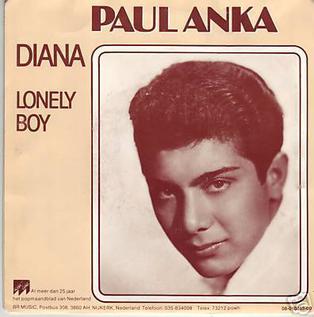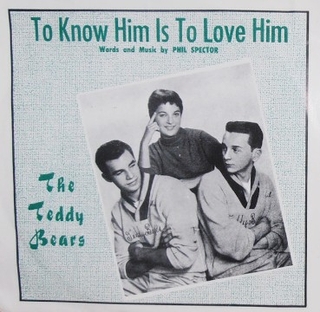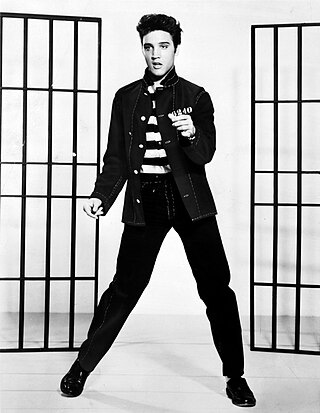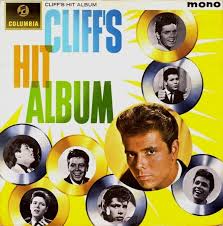This article needs additional citations for verification .(April 2021) |
| "Billy Bayou" | |
|---|---|
| Song | |
| Written | 1958 |
| Songwriter(s) | Roger Miller. |
"Billy Bayou" is a song written by Roger Miller.
This article needs additional citations for verification .(April 2021) |
| "Billy Bayou" | |
|---|---|
| Song | |
| Written | 1958 |
| Songwriter(s) | Roger Miller. |
"Billy Bayou" is a song written by Roger Miller.
It's a slightly comic song about a larger-than-life character, having adventures in America in the 1800s. [1]
"Billy Bayou" was released as a 1958 single by Jim Reeves, where the recording spent a total of 25 weeks on the country chart and was his fourth release to reach No. 1, where it stayed for five weeks. [2] It also reached number 9 peak position on Italy's FIMI National Charts in 1958. In Canada, the song reached number 4 on the CHUM Charts. [3] The B-side of "Billy Bayou" titled "I'd Like to Be", which peaked at number eighteen on the country chart.
The song has been covered by other artists, including:

"Blue Bayou" is a song written by Roy Orbison and Joe Melson. It was originally sung and recorded by Orbison, who had an international hit with his version in 1963. It later became Linda Ronstadt's signature song, with which she scored a Top 5 hit with her cover in 1977. The song has since been recorded by many others.

"Chantilly Lace" is a 1958 rock and roll song by The Big Bopper. It was produced by Jerry Kennedy, and reached No. 6 on the US Billboard Hot 100. Bruce Channel covered the song on his 1962 album, Hey! Baby.The song was also covered by Jerry Lee Lewis in 1972.

"That Old Black Magic" is a 1942 popular song written by Harold Arlen (music), with the lyrics by Johnny Mercer. They wrote it for the 1942 film Star Spangled Rhythm, when it was sung by Johnny Johnston and danced by Vera Zorina. The song was nominated for the Academy Award for Best Original Song in 1943 but lost out to "You'll Never Know".
"Magic Moments" is a popular song composed by Burt Bacharach and written by Hal David, being one of the first songwriting collaborations by that duo. This song was recorded by Perry Como and released in 1957 as the B-side of his "Catch a Falling Star"; it reached No. 1 in the UK in 1958.

"Who's Sorry Now?" is a popular song with music written by Ted Snyder and lyrics by Bert Kalmar and Harry Ruby. It was published in 1923, when Isham Jones had a major hit with it. Other popular versions in 1923 were by Marion Harris, Original Memphis Five, Lewis James, and Irving Kaufman.
"Dream Lover" is a song written by American musician Bobby Darin. Darin recorded his composition on March 5, 1959 and released it as a single the following month. It was produced by Ahmet Ertegun and Jerry Wexler and engineered by Tom Dowd.
"It's All in the Game" is a pop song whose most successful version was recorded by Tommy Edwards in 1958. Carl Sigman composed the lyrics in 1951 to a wordless 1911 composition titled "Melody in A Major", written by Charles G. Dawes, who was later Vice President of the United States under Calvin Coolidge. It is the only No. 1 single in the U.S. to have been co-written by a U.S. Vice President or a Nobel Peace Prize laureate.

"It's Only Make Believe" is a song written by drummer Jack Nance and Mississippi-born singer Conway Twitty, while they were touring across Ontario, Canada in 1958. Twitty was a relatively unknown rock n' roll singer at the time, and this song was his first hit, reaching No. 1 on the Billboard chart in November 1958 for two weeks.

"Lonely Boy" is a song written and recorded by Paul Anka. Recorded in August 1958 with Don Costa's orchestra in New York, "Lonely Boy" was not released until May 11, 1959. Anka sang this song in the film Girls Town. When released as a single, it topped the Billboard Hot 100 for four weeks, becoming Anka's first song to do so, although he had earlier topped Billboard's Best Sellers in Stores chart with "Diana". Billboard ranked it as No. 5 for 1959. The song reached No. 2 in the Canadian CHUM Charts.
"Love Letters in the Sand" is a popular song first published in 1931. The music was written by J. Fred Coots and the lyrics by Nick Kenny and Charles Kenny. Ted Black and His Orchestra, with vocalist Tom Brown, had the first major hit recording of the song in 1931. Pat Boone had a major hit with the song in 1957.

"To Know Him Is to Love Him" is a song written by Phil Spector, inspired by words on his father's tombstone, "To Know Him Was to Love Him." It was first recorded by the only vocal group of which he was a member, the Teddy Bears. Their recording spent three weeks at No. 1 on the Billboard Hot 100 chart in 1958, while reaching No. 2 on the UK's New Musical Express chart. Peter & Gordon and Bobby Vinton later had hits with the song, with its title and lyrics changed to "To Know You Is to Love You". In 1987, the song was resurrected by Dolly Parton, Linda Ronstadt, and Emmylou Harris, whose Trio recording topped the U.S. country singles chart. The song is in 12/8 time.
"The Story of My Life" is a song written by Burt Bacharach and Hal David. It was published in 1957. It was recorded by Marty Robbins and reached number one on Billboard's country chart in 1958, and it became a number one hit song for Michael Holliday in the UK.
"He'll Have to Go" is an American country and pop hit recorded on October 15, 1959, by Jim Reeves. The song, released in the fall of 1959, went on to become a hit in both genres early in 1960.
"I Will" is a song written by Dick Glasser.

"Only Love Can Break a Heart" is a popular song from 1962, performed by the American singer-songwriter Gene Pitney. The song was written by Hal David (words) and Burt Bacharach (music) and appears on Pitney's second album Only Love Can Break a Heart.

The singles discography of Elvis Presley began in 1954 with the release of his first commercial single, "That's All Right". Following his regional success with Sun Records, Presley was signed to RCA Victor on November 20, 1955. Presley's first single with RCA, "Heartbreak Hotel", was a worldwide hit, reaching the No. 1 position in four countries and the top 10 in many other countries. Other hit singles from the 1950s include "Hound Dog", "Don't Be Cruel", "Love Me Tender", Too Much", "All Shook Up", "(Let Me Be Your) Teddy Bear", "Jailhouse Rock", "Don't", "Hard Headed Woman" and "A Big Hunk o' Love". On March 24, 1958, Presley entered the United States Army at Memphis, Tennessee, and was stationed in Germany. He left active duty on March 5, 1960.
"Return to Me" is a song with music by Carmen Lombardo and lyrics by Danny Di Minno. The song was released in 1958 by Dean Martin. Martin recorded the song again in 1961 for his album Dino: Italian Love Songs.

Cliff's Hit Album is Cliff Richard's first compilation album and ninth album overall. It was released in July 1963 and reached number 2 on the UK Albums Chart. The album contains 14 songs from his singles released between August 1958 and May 1962. It includes all Richard's singles in this period that made the top 3 of the UK Singles Chart.

"Forever" is a song written by Buddy Killen, which was released by The Little Dippers and Billy Walker in January 1960.
"A Million and One" is a song written by Yvonne Devaney, which was a hit single for Billy Walker, Dean Martin, and Vic Dana in 1966.